What do you see when you picture Bali? Beautiful virgin beaches with white sand? Eco-cycling by lush, green rice paddies? Or indulging in a relaxing Balinese spa?
Well, those are exactly the kind of images that I would have in my mind too.
But last week, I had the chance to see a different side of Bali.
I left from the Kopernik office with Sangtu, our office driver, and Deni, our field officer, at 6.30am Friday morning. Half an hour later we reached Goa Gajah where we met Bli Ardika, the health team coordinator for East Bali Poverty Project, our local partner for our new clean water project in Bali.
East Bali Poverty Project (EBPP) is a non-profit organization that works to empower the communities living in Desa Ban, Karangasem by providing them with access to clean water, education, health facilities, roads and also electricity. They have been working in the area for 15 years, since 1998.
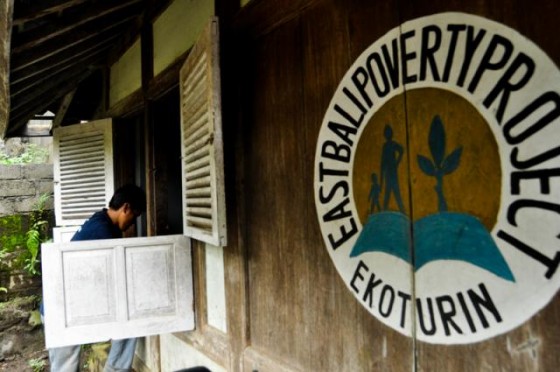
East Bali Poverty Project's branch office in Dusun, Bunga, Desa Ban, Karangasem, Bali
Together with EBPP we are distributing 25 Nazava water filters to six schools located in remote mountain hamlets in Desa Ban (Ban Village). In this village access to a sustainable and clean source of water is limited, so most of the children in Desa Ban drink only two or three glasses of water per day. What’s more shocking to me is that they do not boil the rain water before they drink it!
“If you ask them why they don’t boil the water first before they drink it, they’ll answer that they’re too lazy to do it because it takes time to boil,” added Bli Ardika while driving the car. We’re now on our way from Goa Gajah to Desa Ban.
On the two-hour drive from Goa Gajah to Desa Ban we saw spectacular scenery, as the village is located right under the peaks of Mount Agung and Mount Abang. There are 19 desa adat(communities with the same traditions) in 15 dusun (subvillages) in Desa Ban. On the way up we met many cassava and corn farmers, as 99% of the population in the area are farmers.
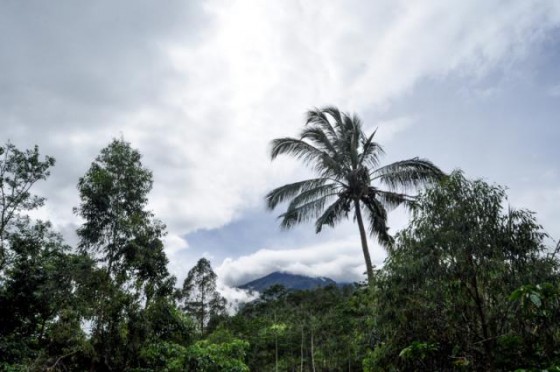
A typical view from Desa Ban
Our first stop in Ban was EBPP’s branch office in Dusun Bunga. Before we went to visit the schools, the team leader, Bli Komang, gave us a short briefing to better understand the locations in Desa Ban.
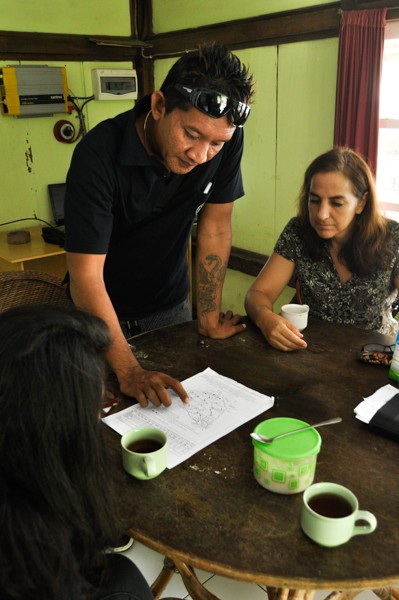
Bli Komang (EBPP Team Leader) explains the map of Desan Ban to Amy (EBPP Volunteer) and I
To be able to reach the schools we had to park our car at EBPP’s office and continue in EBPP’s 4WD. “The road is really bad, it’s basically only a narrow dirt track with big rocks in the way,” said Bli Ardika.
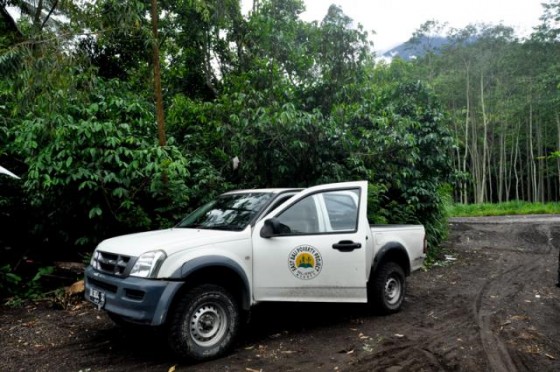
EBPP’s 4WD, ready to go up the hills. (Photo by Rara Sekar Larasati)
Sangtu, Deni and I sat in the back tray of the 4WD. Bli Ardika actually offered us the backseat, but with the beautiful weather we didn’t want to miss the opportunity to enjoy the breathtaking views in front of us!
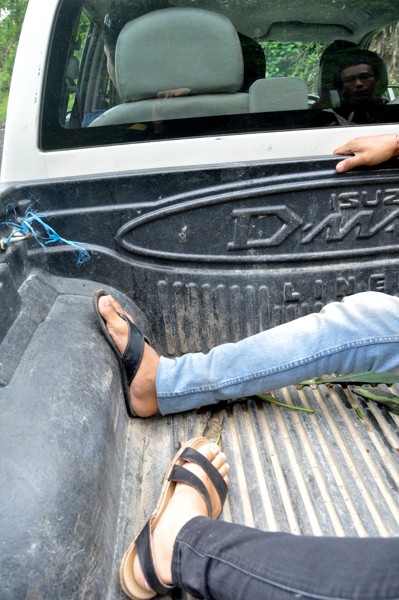
Ready for a rollercoaster ride in the back of the 4WD (Photo by Rara Sekar Larasati)
We visited three of the six schools, located in Dusun Cegi, Pengalusan and Jatituhu. It was not too far from the EBPP office to Dusun Cegi, but from there to Pengalusan and Jatituhu was another one-hour drive.
It is hard to describe exactly how bad the drive was, but I can tell you that it was on par with a rollercoaster ride. While enjoying the bumpy ride at the back of the 4WD, I wonder how people could live in such a difficult place? I cannot imagine how hard it must be to access the traditional markets outside this village as this track we were riding on was only built a few years ago. I remember Bli Komang saying that 10 years ago Desa Ban was not even on the map of Bali.
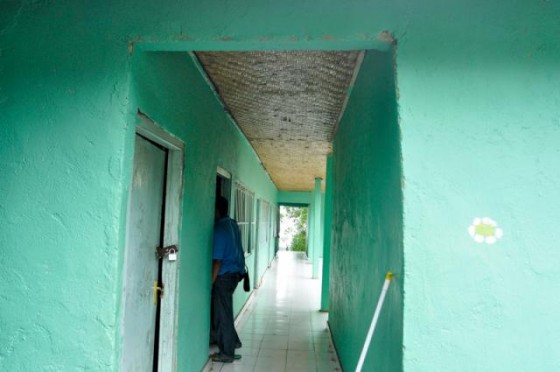
The first school we visited in Dusun Cegi
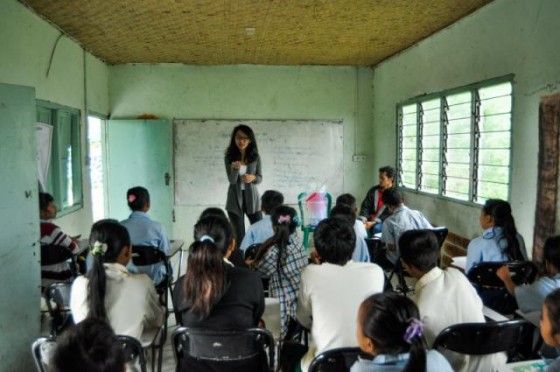
A photo of me, talking about the importance of clean drinking water
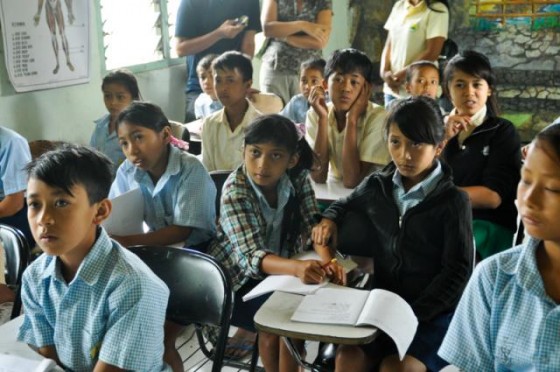
Serious faces as the students learn about the benefits of water filters in schools
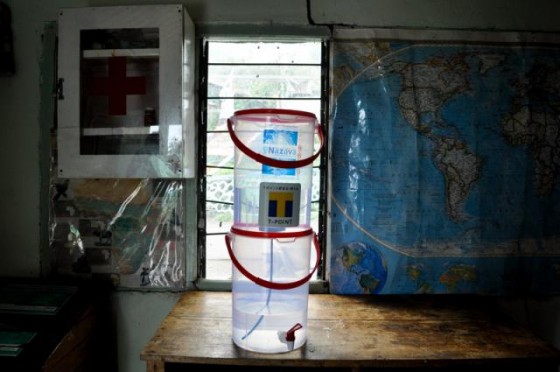
Spotted: our Nazava Water Filter in the school’s library
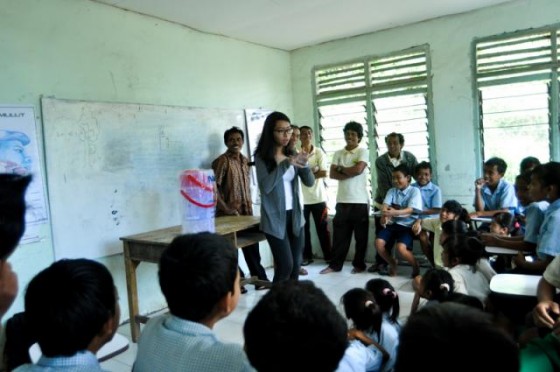
Trying my best to explain about the importance of clean water in a fun and engaging way to the children in the second school we visited, located in Dusun Pengalusan
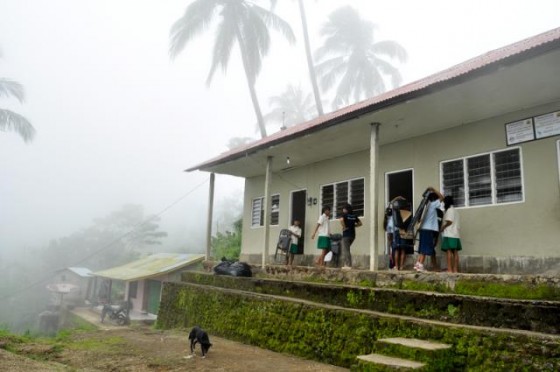
The fog covered the last school we went to, located in Dusun Jatituhu
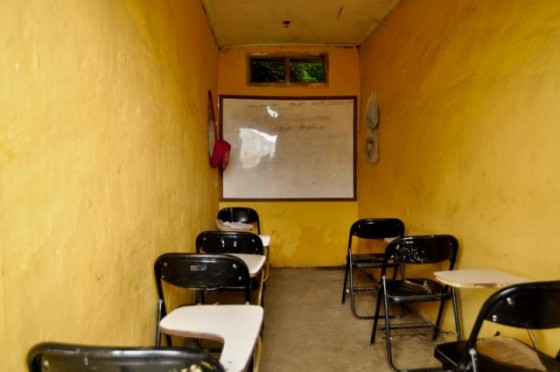
A small classroom at the Jatitituhu School
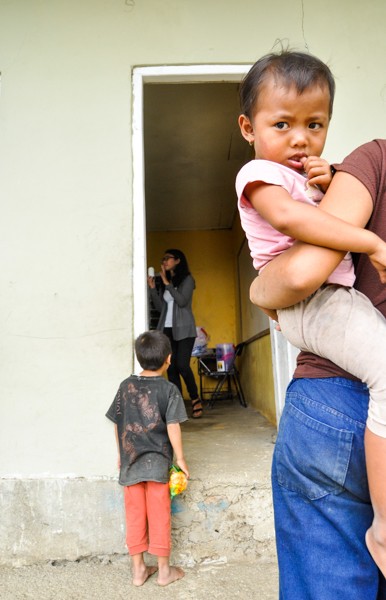
The local people living near the school were also interested in hearing about the water filters!
At each of the schools I talked to the students about the proper use of the filters and also about the importance of access to safe drinking water at school to improve the health and performance of children in class.
When I asked how many glasses of water they drink each day, some of the children answered worse than I expected; one or two glasses per day! Considering many students have a steep uphill walk each morning to get to school, they must be really thirsty everyday.
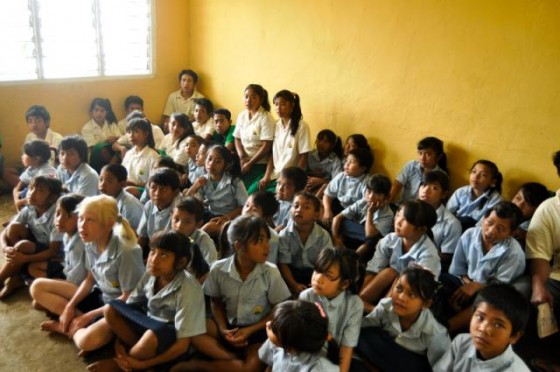
Students at the school in Dusun Jatituhu, ranging in age from 6 to 12
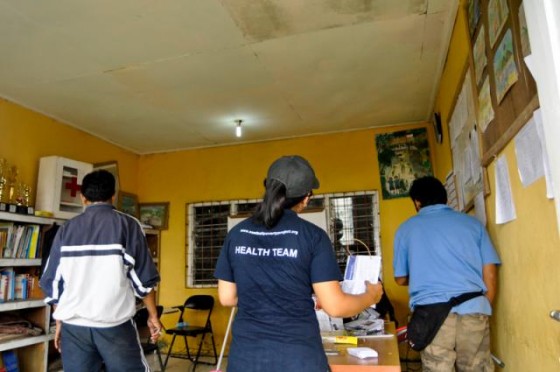
The EBPP Health Team in Jatituhu
According to the EBPP staff, dehydration is indeed a major problem for these children. Hopefully with the water filters provided in schools they will start drinking more water each day.
After the short class the children stood in line to test the water filters. I talked to several children after class and all of them were very excited and happy with the presence of the water filters at school!
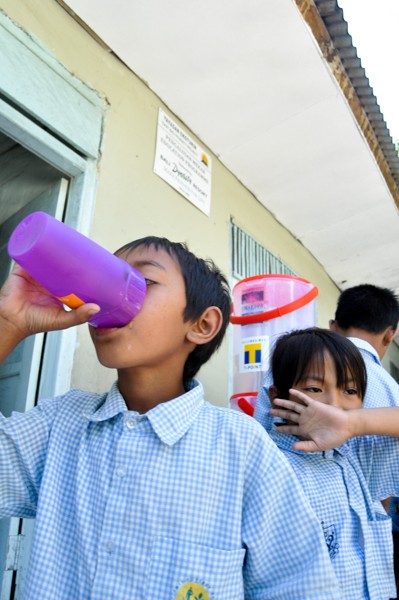
With the water filters provided in schools, children now have access to clean and safe drinking water everyday
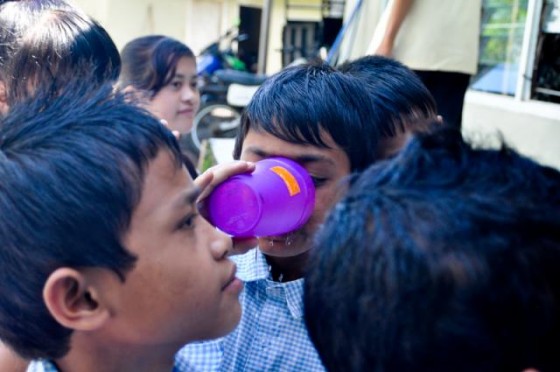
A student at Pengalusan School enjoys his cup of clean, fresh water
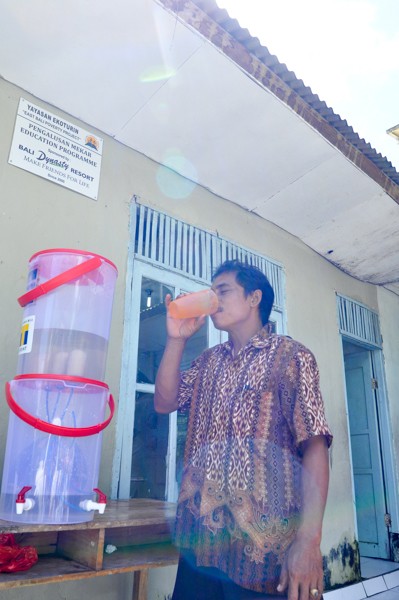
Not only the students, teachers were also excited to try out the water filter!
As Project Officer in charge of this project, I cannot wait to see how the children’s water consumption improves in the next three months. This may be a small project, but I am impressed by how just 25 water filters have the potential to impact so many lives by preventing dehydration, improving children’s performance in class and increasing the whole community’s awareness of the importance of drinking safe and clean water.
Thanks to T-Point, who fully funded the project, this project will not be the last project to distribute water filters to schools in Bali. This project is only the beginning of many more projects to provide clean and safe drinking water to schools in Bali.


